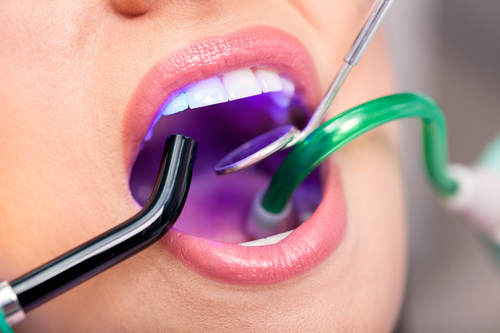Toothbrush Tips for Cold and Flu Season
Cold and flu season has arrived, and we bet you've stocked up on cough drops, tissues, and hand sanitizer. But have you thought about your toothbrush? While proper toothbrush hygiene...

Whether you’ve just heard the news from your dentist that you need a filling, or perhaps you’re wondering just how long those fillings from your childhood are going to last, regardless, it’s a good fact to know.
Selecting a filling material that works best for you should involve some consideration, as this is what is going to be the main determining factor behind how long your filling is going to last.
When deciding on what type of material your dentist should use for your new filling, always take into consideration:
There are several types of fillings, including:
Tooth Colored Resin
This material will look the most natural and blend in with the surrounding teeth. With proper care, resin fillings can last patients a very long time but may need to be replaced every 7-10 years depending on your oral care.
Silver/Amalgam
The average silver filling lasts around 15 years. These fillings are common but they are also the most likely to stand out in the mouth since the silver color looks nothing like natural tooth enamel.
Gold
This type of filling is the most expensive, but can also last the longest, up to 30 years before needing to be replaced. In many cases, gold fillings will last for on average 15 years.
With a little effort from you, your dental work can last as long as possible by:
Maintaining Excellent Oral Hygiene
Caring for your teeth and gums without fillings is just as important as caring for the ones that do. Brushing and flossing twice per day, for two full minutes, is a great step in protecting your teeth and keeping them in great condition. Always use a soft bristle toothbrush and a toothpaste with fluoride.
Eating a Well-Balanced Diet
Eating and drinking foods that are good for your teeth and not likely to cause erosion or damage is a healthy and simple way of protecting your investment. Avoiding things like soda, acidic, sugary, and processed foods will help to reduce the amount of plaque that forms on your teeth, which leads to tooth decay.
After a dental filling, there are a few helpful tips you can do following your appointment to relieve any pain and discomfort you may be feeling. One of the most common reasons you may experience pain after a dental filling may be because the filling itself is too high. Contact your dentist about having the filling smoothed or reshaped if things don’t feel quite right.
It’s also typical to experience some pain in the teeth beside the tooth that received the filling. Most of the time, the tooth with the new filling is just passing along signals to the neighboring teeth, and this type of pain should decrease within one to two weeks.
If you’re experiencing any physical discomfort, you can use an over the counter pain reliever after a dental filling to help in relieving any discomfort.
It’s best to avoid any hard, chewy or sticky foods after receiving a dental filling for up to two weeks. If you are experiencing tooth sensitivity, you may also benefit from avoiding hot or cold drinks and foods. There is no need to wait to brush your teeth after a dental filling and should continue to brush twice a day and flossing once a day.
While dental fillings are an effective treatment for tooth decay, they rarely last forever. That being said, you can significantly increase the longevity of your fillings if you understand the value of dental filling care and proper oral hygiene.
Help your fillings last by:
Seeing your dentist twice a year for routine cleanings and exams will help keep your fillings, and other healthy teeth in great shape. Schedule an exam today with Dr. Baudean if it’s been a while since you’ve had your fillings checked.